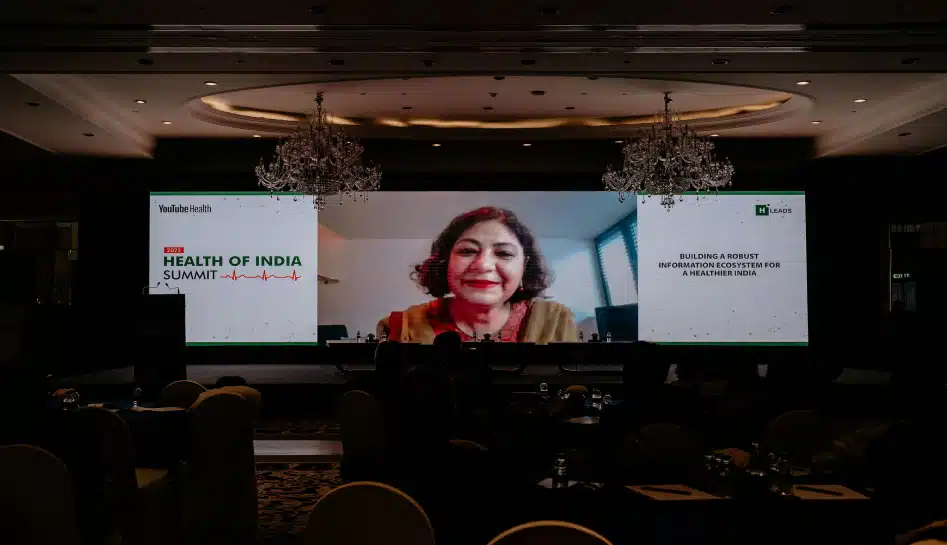Science should be for the people, of the people and taken forward by the people, she tells audience at the Health of India summit
We have to put people at the front and centre of any health initiative if we want to find solutions and answers to the health challenges facing us, said Dr Supriya Bezbaruah, Global Team Lead for Science Translation in Public Health Emergencies at World Health Organization, during her virtual address to the Health of India (HOI) summit organized by DataLEADS in New Delhi on November 12.
“It’s people who are at the heart of any health issue. It’s people’s actions that make the difference in whether things get better or whether things get worse,” Dr Supriya said. “You may have the best doctor prescribe a medicine to a patient, but if a patient doesn’t like that medicine and doesn’t take it or forgets to take it or finds it too bitter, the patient will not get better.”
The HOI summit which was supported by YouTube Health brought together top health leaders including Dr. Garth Graham, Director and Global Head of Healthcare and Public Health at YouTube to build conversations on the emerging challenges of health misinformation and to promote health consciousness among communities.
Dr Supriya urged health policy planners to finetune the delivery of the message for its effective implementation on the ground. “When do people follow something? Well, for them to follow the science it needs, first of all, they need the information. They need to be able to get the information easily,” Dr Supriya said. “And secondly, they need to understand that information. Currently, understanding is not enough. They also need to, you know, believe in it.”
And to this end, she called for following a four-step communication strategy to rally people around a health initiative – transparency, timeliness, convenience, trust and relationships.
“Be open, be transparent and be timely again because we are living in an interconnected world,” she said.
Timeliness is about getting to the people with facts before misinformation does. “Any information, even if it’s fake news and information, spreads within seconds. And once that is embedded in people’s minds, displacing that misinformation gets more difficult. So we have to be the ones to get in there first with the credible information,” she said.
Convenience is about taking science to the people. “When you’ve had door to door vaccinations or you’ve had vaccination centers that are close to people’s homes, they’re likely to be more successful because you’ve taken the scientific solutions to the people,” Dr Supriya said. “If it’s somewhere really far off but you campaign and you tell people you must get your children vaccinated, you know, mothers will not be able to go far away with their babies to get them vaccinated.”
Building relationships, she explained, is the most important thing in building trust with people. “Science sometimes has a PR problem. You know, people think of science as, oh, that’s not relevant to my life. That’s too difficult. But it’s not,” Dr Supriya said adding that we need to explain to people how science works. “It’s science that leads to the good things that come into your life, science and technology. So before a major issue erupts we have to build up that relationship. Explain how science works.”
She also made a case for enlisting health experts and engagement with media to get across a credible information to the public.
“Science should be for the people, of the people and taken forward by the people,” Dr Supriya said. “Only then will our work as public health risk communicators be considered successful.”
Read more : https://h-leads.com/hair-straightening-chemicals-a-factor-in-uterine-cancer-study/

















